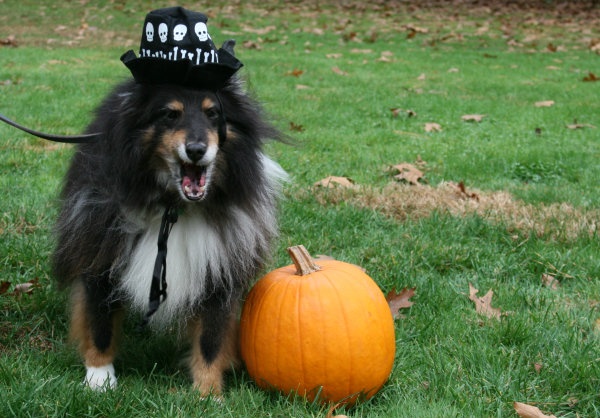Children of all ages love Halloween – the costumes, the scary decorations and, most of all, the treats. But Halloween can be frightening – and even dangerous -- for the family dog and cat.

Responsible pet owners need to take precautions to protect their best friends from Halloween dangers -- which range from chocolate to burning candles to strange sights and sounds
The pet care experts at Best Friends offer the following advice:
• Keep candy out of reach. Chocolate is toxic for dogs: just one ounce can be life threatening for a dog weighing 10 pounds. And candy wrappers, which smell sweet and appealing to pets, can cause choking. It’s best to have pet-safe treats in your pocket or close at hand to distract pets from candy.
• Put burning decorations up high. Although pets won’t seek out a burning candle, a wagging tail can knock over a candle holder or small jack-o-lantern, causing injury to the pet and the possibility of fire.
• Choose decorations carefully. Cats, in particular, are attracted to decorations with hanging elements and can ingest or become entangled in the materials.
• Keep your dog on leash. Even well-behaved pets may become excited by the strange sights and sounds and dash out an open door in pursuit of trick-or-treaters. It’s a good idea to have your pet wearing his identification tags, too – just in case he gets loose.
• Never leave pets along outdoors on Halloween. Black cats, in particular, can become the target of cruel behavior on this night of the year. Keep kitty safely indoors.
• If you want your pet to wear a costume, choose one that won’t restrict his movements or cover his eyes. Also be sure that there are no small pieces he might swallow. Some pets enjoy dressing up, but others don’t like it. Introduce the costume slowly, one piece at a time, and let him to get used wearing it before the big night. Don’t force your pet to wear a costume if he isn’t comfortable.
Some pets become overly anxious at the shrieks and shouts and constantly ringing doorbell. While cats tend to hide, dogs are more likely to run away. If your dog is the nervous kind, confine him to a room in the back of the house – away from the activity. Be sure to check on him regularly, talking to him in a happy voice. If you plan to be out for the evening, consider taking him to a boarding kennel, where he will have the company of other dogs, attention from the staff and will be away from the sights and sounds of the night.




